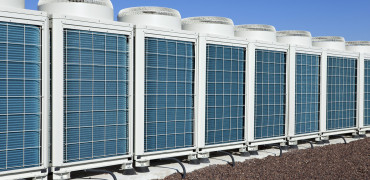In the summer of 2019, the UK became the first major economy to pass a net-zero emissions law, with a deadline date of 2050.
Since then, it has even upped the ante somewhat, with a string of challenging interim targets as this article on our blogsite shows.
Last December, the Government declared the goal of cutting emissions by 68% by the end of the decade, 2030, establishing a route-marker on the pathway to net zero by 2050.
Yet many people don't realise that every single one of us can do something that contributes to reaching this goal.
I've compiled a list of small changes that can be made to your daily life
A balanced approach
First of all, let's clarify precisely what net-zero means. It is about finding a balance between the carbon emitted into the atmosphere and the carbon removed from it: something that will happen when the amount of carbon we add to the atmosphere is no more than the amount taken away.
Saving the planet has become a priority for our children and for generations to come as we focus on in this Hub article. Climate change means hotter summers and colder winters … and more extreme weather, more often.
To avoid the terrible consequences of climate change, emissions from homes, businesses, transport, agriculture, and industry have to be cut.
Which is why we see the banning of single-use plastic, replacing combustion engine vehicles with electrically powered alternatives, and changing the way we heat and cool our buildings with renewable technologies and advanced, energy-efficient equipment.
However, according to the International Energy Agency report, around 4% of the emissions reductions that we need to reach our global net-zero target will come directly from individual people changing their behaviour.
With that in mind, I've compiled a list of small changes that can be made to daily life that will make your life more sustainable, both now and into the future.
1. Drive less
Using public transport, cycling, or walking instead of driving can significantly impact your CO2 emissions. Cutting driving by a third a year can reduce Brits' carbon footprint by around 15%.
According to a new survey conducted in November 2020 by pay-as-you-go insurance provider By Miles on 2,500 UK residents, commuters have reduced an average of 30 miles less per week than before the first lockdown. Even though this data can be considered, in part, the result of the pandemic, previous data collected has revealed a general growing trend towards reducing car usage on a long-term basis.
An estimated 30 million (72%) UK drivers plan to cut down their annual mileage in the next year. However, 93% admitted that this would be hard to do without clear incentives such as cheaper monthly premiums for driving less (36%), more affordable and more regular public transport (34%), or reducing car tax if you drive less (33%).
Avoiding short journeys can significantly reduce fuel consumption – a cold engine uses almost twice as much fuel, and catalytic converters can take five miles to become effective.
2. Adopt an electric vehicle
Did you know that, in addition to cutting emissions, electric cars provide many benefits to drivers?
First of all, they allow you to save money, as filling up on electricity is cheaper than gasoline, and maintenance costs are lower. Plus, they offer you a better driving experience.
Indeed, an electric engine generates instant torque, which means that electric vehicles zoom off starting lines and provide smooth, responsive acceleration and deceleration.
Electric cars also have a low centre of gravity, which improves handling, responsiveness, and ride comfort. All benefits add to the main: reducing your carbon emissions and making the world a better place.
3. Save energy at home
There are several ways you can save energy at home, ranging from simple behavioural adjustments to extensive home improvements. You can start turning off lights or appliances when you do not need them, hanging clothes out to dry instead of using a drier, and washing dishes by hand. Replacing your old light bulbs with energy-efficient ones is also a great way to reduce your energy consumption.
Replacing appliances such as dryers and refrigerators (two of the most energy-intensive ones) with better efficient models that can cut the electricity usage by half is another adjustment. Installing heat pumps is another idea to reduce electricity consumption - and, speaking about this, we can provide you with Ecodan, one of the most advanced, efficient renewable heating systems available today.
In general, maintaining and replacing appliances every few years will lessen your electricity usage.
Unplugging devices when you don't use them is an essential tip, too, and keeping the thermostat at a lower temperature (around 17 degrees would be the ideal). Double glazing doors and windows can help reduce the emissions of greenhouse gases from heating and cooling (offers a 50% reduction). Even cooking with the lid on is a straightforward tip to lessen the cooking time and water usage significantly.
Draughts waste a lot of energy by losing heat too. One quick and relatively cheap win is to put a brush or seal on your doors to prevent air from escaping around the edges. Both loft and wall insulation can reduce your energy bills and help lower your consumption, especially in the case of older homes that are not constructed in an energy-efficient manner. That's an excellent way to boost your score and renew your home to be more energy-efficient.
Last but not least, switching, where possible, to solar-powered electronics can go a long way and can also lower your maintenance and replacement costs of such electronics.
4. Use a zero-carbon electricity provider
If you'd love to reduce your carbon footprint but as yet aren't in the position to install renewable energy, the next best thing is to switch your energy supplier to one with green credentials.
As shown by this article, there is good news for you. The industry is growing at an incredible rate, so there's so much more choice than ever before.
Renewable energy providers such Geuk, Ecotricity and Bristol Energy, to name a few, specifically offer 100% renewable electricity and at least 10% green gas (biogas).
5. Buy less fast fashion
The fashion industry is one of the primary polluting industries in the world. Just think that it can take up to 20,000 litres of water to make just one new t-shirt and one new pair of jeans - a topic we have covered previously on The Hub.
That means that it takes 10,000 litres of water to produce one kilogram of cotton or approximately 3,000 litres of water for one cotton shirt. Furthermore, textile dyeing requires toxic chemicals that subsequently end up in our oceans.
About 20% of the wastewater worldwide is attributed to this process, which accumulates over time. As many factories moved overseas, as stated previously, they may be in countries without strict environmental regulations, resulting in untreated water entering the oceans.
Regrettably, the wastewater created is highly toxic and, in many cases, cannot be treated to become safe again.
Next, synthetic materials are the primary culprits that cause plastic microfibers to enter our oceans. Approximately 35% of all microplastics are from these synthetic materials. In addition, viscose, also known as rayon, is a standard cellulosic fibre made from wood pulp.
It has highly detrimental effects on the environment, such as harmful chemicals and unethical resourcing for the material.
Buying more of your clothes from charity shops and sustainable clothing outlets can make a huge difference in sustainability.
6. Dry clothes naturally
Washing and drying machines are easy and quick to use but very expensive in terms of energy.
Using clothes horses and hanging clothes up on a washing line will save just over 4kWh of energy and around 1.8kg CO2 per cycle.
7. Take shorter showers
The more hot water used, the higher the energy and utility bills will be, so using less water can lower energy costs and help your bank balance.
Showers use 2.5 gallons of water per minute, and each gallon uses three ounces of carbon dioxide.
So, if you shorten showers by 2 minutes a day, you can save 342 pounds of carbon dioxide a year.
That’s quite a saving over time!
8. Eat less meat
The UN Food and Agriculture Organization (FAO) shows that livestock is responsible for 18 % of our world global warming emissions between farming, transporting, and storing meat.
Therefore, each meat-eater is responsible for 1.5 more tons of greenhouse gases than a vegan per year.
By contrast, switching from a Toyota Camry to a hybrid Toyota Prius would save one ton of greenhouse gases annually.
Every year, global meat production is projected to more than double what it was at the turn of the century by 2050, increasing the associated global warming gases.
That's why cutting meat and other animal products out of your diet are one of the most significant steps you can take to begin a more sustainable lifestyle.
Moreover, the amount of land used for farming worldwide is the most important cause of deforestation.
9. Cut out pesticides
They are a huge source of pollution.
By choosing an environmentally friendly garden, you're not only saving the planet but saving your own money and energy, too!
10. Reduce energy consumption at the office
Only use the lights you need. Turn off lights in unused rooms.
Better still, get your building to install occupancy sensors.
Turn off your computer monitor when you leave the office at the end of the day.
Think before you print – but if you have to print at all, print double-sided – you can even print multiple pages to a sheet.
Do you need those hard copies, or can you save them on your computer instead?
Ready for a better future
Here at Mitsubishi Electric, we are working to build a more sustainable future and make the world a better place.
Buildings will always need to be heated, cooled and ventilated, and now, it is possible to do so in the most energy-efficient and sustainable way possible.
But, conversely, everyone could hold accountability for the environment - no matter how small your area of influence is, as we showed, there is always something you can do!
James Smurthwaite is Business Development Manager


